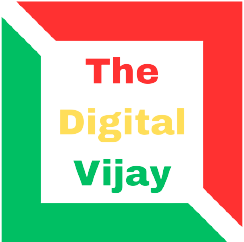Digital EcoSystem
In the realm of digital marketing, the term “Digital Ecosystem” holds immense significance, representing the interconnected web of digital platforms, tools, and channels that businesses leverage to reach and engage their target audience. This dynamic environment has reshaped the landscape of marketing, providing both challenges and opportunities for brands seeking to establish a robust online presence.
Understanding the Digital Ecosystem
At its core, the digital ecosystem for digital marketing encompasses the vast array of online platforms and technologies that facilitate communication, interaction, and transactions between businesses and consumers. From social media platforms and search engines to email marketing tools and e-commerce websites, every digital touchpoint contributes to this intricate ecosystem.
Components of the Digital Ecosystem
Social Media Platforms: Social media plays a pivotal role in the digital marketing ecosystem. Platforms like Facebook, Instagram, Twitter, and LinkedIn provide channels for brands to connect with their audience, share content, and build a community around their products or services.
Search Engines: The visibility of a brand online often begins with search engines. Search engine optimization (SEO) is a critical component of digital marketing, ensuring that a brand’s website ranks high in search results, driving organic traffic.
Content Management Systems (CMS): Efficient content creation and management are vital for digital marketing success. CMS platforms like WordPress and Drupal empower businesses to create and publish content seamlessly, enhancing their online presence.
Email Marketing Tools: Email remains a powerful tool for direct communication with customers. Email marketing platforms like Mailchimp and Constant Contact enable businesses to send targeted messages, promotions, and newsletters to their audience.
E-commerce Platforms: For businesses engaged in online sales, e-commerce platforms such as Shopify and Magento provide the infrastructure for setting up and managing digital storefronts, ensuring a smooth customer shopping experience.
Analytics and Data Tools: Understanding consumer behavior is crucial for effective digital marketing strategies. Analytics tools like Google Analytics and Adobe Analytics provide valuable insights into website performance, user engagement, and conversion metrics.
Advertising Platforms: Digital advertising platforms, including Google Ads and Facebook Ads, enable businesses to reach specific demographics and target audiences with precision, maximizing the impact of their marketing budget.
The Dynamics of Interaction
In the digital ecosystem, the interaction between these components is fluid and dynamic. A well-orchestrated digital marketing strategy involves integrating these elements seamlessly, creating a cohesive brand experience for the audience. For instance, a social media campaign might drive traffic to a website optimized for search engines, supported by targeted email campaigns to nurture leads.
Challenges and Opportunities
While the digital ecosystem offers unparalleled opportunities for brand visibility and engagement, it also presents challenges. The sheer volume of digital channels requires businesses to carefully choose and prioritize platforms aligned with their target audience. Maintaining a consistent brand voice across diverse channels is crucial for building trust and recognition.
Moreover, the rapid evolution of technology demands adaptability. Staying abreast of emerging trends and technologies ensures that businesses remain competitive within the digital landscape. Security and privacy concerns also require vigilant management to build and maintain customer trust.
Conclusion
In the era of digital marketing, the digital ecosystem serves as the foundation upon which successful campaigns are built. The interconnectedness of various platforms and tools presents businesses with unparalleled opportunities to reach and engage their audience. However, navigating this dynamic landscape requires strategic planning, adaptability, and a keen understanding of the evolving digital landscape. As businesses continue to harness the power of the digital ecosystem, staying agile and innovative will be key to sustained success in the ever-evolving digital marketing sphere.
- Local Listing
- Google My Business
- Business Directory
- QR Code
- Review on Google Map
